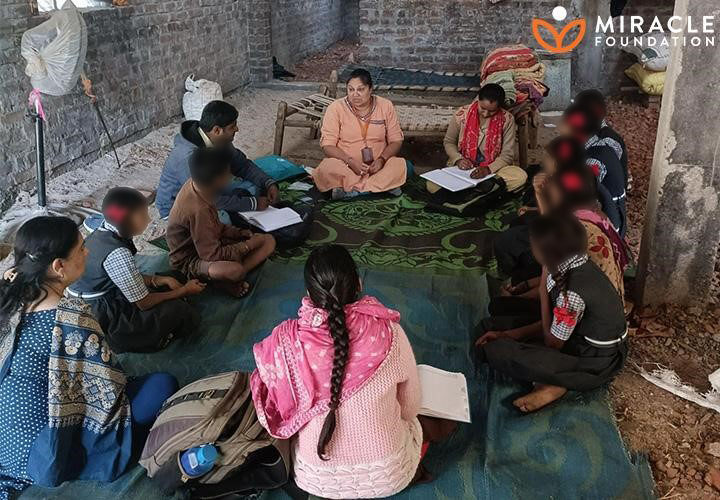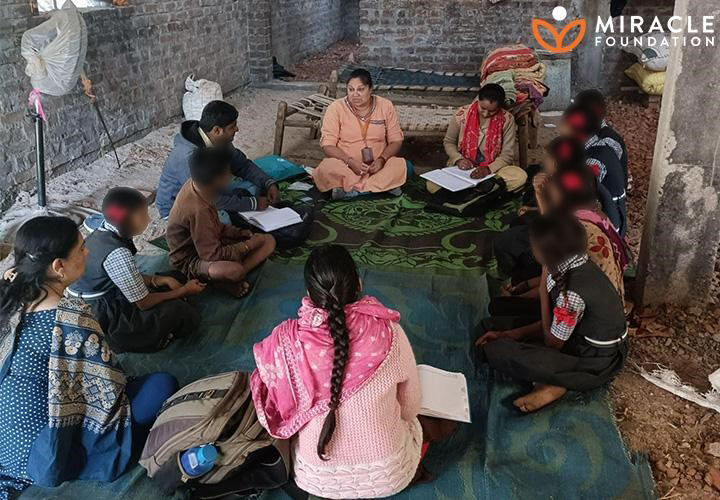
Right to participate is an entitlement that the children have in any decision made for and on behalf of them, affecting them in family, schools, community, governance or in any other settings.
Child participation can be defined as children (individually and/or collectively) engaging with opportunities to form and express their views and to influence matters that concern them directly and indirectly.
Why is child participation important?
Child participation is positive for the development of children and youth; it increases self-esteem and self-believe. Child participation has a positive impact on the community engagement and active citizenship, children can co-decide on matters that affect them directly.
The concept of participation emphasizes that including children should not only be a momentary act, but the starting point for an intense exchange between children and adults on the development of policies, programmes and measures in all relevant contexts of children’s lives
Miracle Foundation in alignment with UNCRC:
UNCRC clearly stated that:
- Children have the right to say what they think should happen, when adults are making decisions that affect them, and to have their opinion taken into account (article 12). ‘
- Children have the right to meet together and to join groups and organizations, as long as this does not stop other people from enjoying their rights (article 15).
Miracle Foundation’s methodology is based on the Rights of the Child, ratified by the UN in 1989. These rights that have been adopted align closely with the UNCRC and are a foundation upon which our programs are designed.
Children’s committees in Miracle Foundation India supported CCIs perform a key role in giving children a platform to voice their opinion and participate in decision making.
- Outcomes - The outcomes we seek to achieve through the children’s committees are as follows:
∙ Platform to discuss issues and express their views.
∙ Children monitor and maintain progress on issues of hygiene, nutrition, education, prevention of abuse, neglect, and exploitation, etc.
∙ Children have available mechanisms to address grievances in order to bring to the forefront any issues they face and ensure they are addressed by the appropriate authority in a timely and professional manner.
∙ Children develop strong communication and leadership skills.
∙ Children learn about active citizenship and how to apply it to their home, families, and school.
∙ Increased peer to peer interaction across age and gender groups.
∙ Formation of a home wide network where all children participate and support in the governing of homes. - Types of Children’s Committees - Some examples of the types of children’s committees in the partnered CCIs are:
∙ Health and Hygiene Committee
∙ Food and Nutrition
∙ Education Committee
∙ Recreation or Sports Committee
∙ Editorial Committee
∙ Garden Committee
∙ Discipline Committee
∙ WASH Committee
Decisions on the types of committee’s children wish to form at the CCIs are made through a focus group discussion conducted by Miracle Foundation team members, the social worker and the children.
Miracle Foundation team ensures house parents, the social worker, and children receive training on the formation and effective functioning of children’s committees. Ongoing support, training, and monitoring is provided to the caregivers and children to help review and plan the work conducted by the children’s committees.
One such Miracle partnered CCI is Marialaya at Coimbatore which has a well-formed Children’s committee and encourages child participation. All the children from the age 5yrs till 18yrs are members of two of the nine committees of their choice and are ensured utmost participation by the SW and caretakers . The children take up their roles and responsibilities with due diligence as set for their specific committees.
One CCI staff team shares –“Children’s committee has enabled great transformation in the behaviour and participatory aspect of the children who hail from difficult and insufficient backgrounds. This kind of participation enhances self-discipline and leadership qualities among the children. This also enables their smooth transition into the community as a responsible citizen.”

